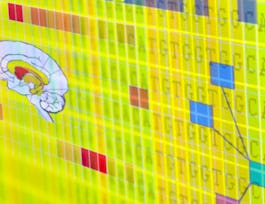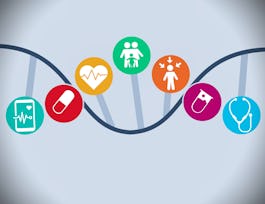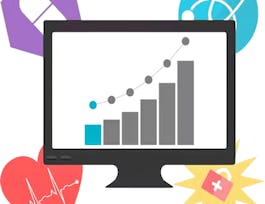This course introduces you to the basic biology of modern genomics and the experimental tools that we use to measure it. We'll introduce the Central Dogma of Molecular Biology and cover how next-generation sequencing can be used to measure DNA, RNA, and epigenetic patterns. You'll also get an introduction to the key concepts in computing and data science that you'll need to understand how data from next-generation sequencing experiments are generated and analyzed.



Introduction to Genomic Technologies
This course is part of Genomic Data Science Specialization


Instructors: Steven Salzberg, PhD
Sponsored by IEM UEM Group
109,956 already enrolled
(4,660 reviews)
Skills you'll gain
- Life Sciences
- Algorithms
- Data Science
- Scientific Methods
- Data Structures
- Bioinformatics
- Computer Science
- Data Analysis
- Mathematics and Mathematical Modeling
- Biostatistics
- Epidemiology
- Statistical Methods
- Statistical Analysis
- Analytics
- Probability & Statistics
- General Science and Research
- Statistics
- Research Design
- Research
- Experimentation
Details to know

Add to your LinkedIn profile
5 assignments
See how employees at top companies are mastering in-demand skills

Build your subject-matter expertise
- Learn new concepts from industry experts
- Gain a foundational understanding of a subject or tool
- Develop job-relevant skills with hands-on projects
- Earn a shareable career certificate


Earn a career certificate
Add this credential to your LinkedIn profile, resume, or CV
Share it on social media and in your performance review

There are 4 modules in this course
In this Module, you can expect to study topics of "Just enough molecular biology", "The genome", "Writing a DNA sequence", "Central dogma", "Transcription", "Translation", and "DNA structure and modifications".
What's included
8 videos2 readings1 assignment
In this module, you'll learn about polymerase chain reaction, next generation sequencing, and applications of sequencing.
What's included
3 videos1 assignment
The lectures for this module cover a few basic topics in computing technology. We'll go over the foundations of computer science, algorithms, memory and data structures, efficiency, software engineering, and computational biology software.
What's included
6 videos1 assignment
In this module on Data Science Technology, we'll be covering quite a lot of information about how to handle the data produced during the sequencing process. We'll cover reproducibility, analysis, statistics, question types, the central dogma of inference, analysis code, testing, prediction, variation, experimental design, confounding, power, sample size, correlation, causation, and degrees of freedom.
What's included
10 videos2 readings2 assignments
Instructors

Offered by
Why people choose Coursera for their career




Learner reviews
4,660 reviews
- 5 stars
66.13%
- 4 stars
27.14%
- 3 stars
5.16%
- 2 stars
0.98%
- 1 star
0.55%
Showing 3 of 4660
Reviewed on Nov 16, 2019
This course had gave me the overview of the statistical analyses for genomic data analysis. This is useful for me as I can employ those statistical Analyses knowledge in the near future
Reviewed on Aug 1, 2021
This course gives me a brief introduction into genomics and how technology might help and has helped. The only complain is thatthe quiz are way too easy compared to university level course.
Reviewed on Jun 12, 2016
Very good introductory course. It's a lot of material to cover for a newbie, but if you have some background, you will find you progress pretty quickly. Enjoyable, engaging, fun and useful.
Recommended if you're interested in Data Science

University of Toronto

University of Geneva

The State University of New York

University of Colorado System

Open new doors with Coursera Plus
Unlimited access to 10,000+ world-class courses, hands-on projects, and job-ready certificate programs - all included in your subscription
Advance your career with an online degree
Earn a degree from world-class universities - 100% online
Join over 3,400 global companies that choose Coursera for Business
Upskill your employees to excel in the digital economy


